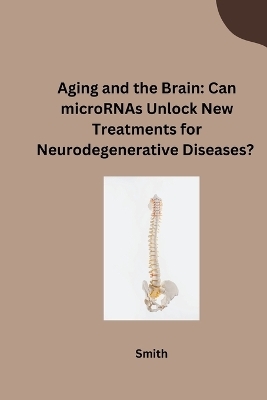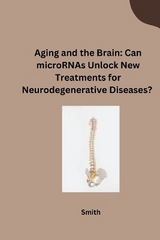The aging brain is a battlefield. As we get older, neurodegenerative diseases like Alzheimer's and Parkinson's become a looming threat. "Aging and the Brain: Can microRNAs Unlock New Treatments for Neurodegenerative Diseases?" explores the exciting potential of microRNAs, tiny molecules with a big role to play in potentially combating these devastating conditions.Imagine a new weapon in the fight against neurodegeneration: microRNAs. These microscopic regulators within cells control gene expression, influencing various cellular processes. In the context of neurodegeneration, scientists believe abnormal microRNA activity may contribute to the disease process.The potential benefits of targeting microRNAs are intriguing:-Modulating Cellular Function: By regulating microRNAs, scientists hope to influence cellular processes gone awry in neurodegeneration, potentially promoting neuron health and survival.-Early Intervention: Identifying specific microRNA patterns associated with neurodegeneration could pave the way for earlier diagnosis and intervention, before significant damage occurs.-Targeted Therapeutics: Developing drugs that manipulate microRNA activity offers a potentially more targeted approach to treatment compared to traditional medications.However, challenges remain:-Delivery Methods: Delivering microRNA-based therapies to the brain effectively and safely is a hurdle that needs to be overcome.-Disease Complexity: Neurodegeneration likely involves multiple factors beyond microRNAs. A single therapeutic approach may not be sufficient.-Long-Term Effects: More research is needed to understand the long-term safety and efficacy of microRNA-based therapies.Despite these challenges, the potential of microRNAs is undeniable:-Specificity: MicroRNAs can target specific pathways involved in neurodegeneration, potentially leading to fewer side effects.-Biomarker Potential: Studying microRNA profiles may provide valuable biomarkers for early detection and monitoring of neurodegenerative diseases.-Novel Therapeutic Avenue: MicroRNAs offer a promising new avenue for research and drug development in the fight against neurodegeneration.As scientists unlock the secrets of microRNAs, a new chapter in the battle against neurodegenerative diseases may unfold. By harnessing the power of these tiny molecules, we may one day rewrite the narrative of aging and the brain, offering hope for a future where minds remain sharp and vibrant throughout life.
Professor Smith, for your British Literature course, I'd like to propose "Triumphant Toil: British Lit Heroes." This book delves into the iconic heroes and heroines that populate British literature. We'll analyze characters across eras, from medieval knights to Victorian anti-heroes. Through in-depth exploration, we'll dissect their triumphs and struggles, how they overcome adversity, face moral dilemmas, and ultimately achieve victory, both external and internal. Key themes include overcoming challenges, the concept of sacrifice and redemption, and the hero's journey – a narrative path where trials, mentors, and internal conflicts shape these literary paragons. "Triumphant Toil" is designed for students seeking a deeper understanding of heroism in British literature, but also anyone fascinated by the complexities of human nature and the power of storytelling.




